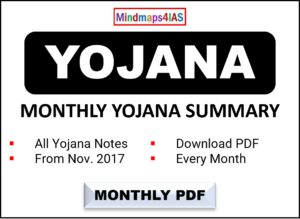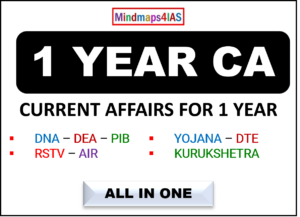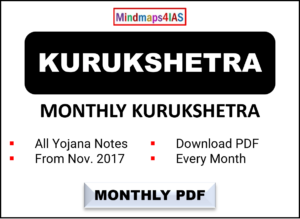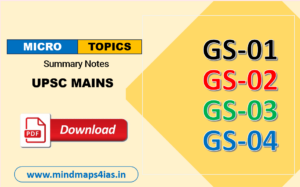A. CRIMINAL LAW REFORMS – THE THREE NEW CODES
1. Context of Reform
- Part of PM Modi’s vision to remove colonial-era laws
- Implementation date: July 1, 2024
- First major reform of criminal laws since independence
2. The Three New Laws
a) Bharatiya Nyay Sanhita (BNS)
- Replaced: Indian Penal Code, 1860
- Key Features:
- Justice-oriented approach over punitive measures
- Enhanced focus on crimes against women and children
- New chapter specifically addressing gender-based crimes
- Modern definitions of crimes including cyber offenses
- Speedier trial processes
b) Bharatiya Nagarik Suraksha Sanhita (BNSS)
- Replaced: Code of Criminal Procedure, 1973
- Key Features:
- Modernized investigation procedures
- Digital evidence handling protocols
- Time-bound investigation mandates
- Enhanced victim protection measures
- Streamlined court procedures
c) Bharatiya Sakshya Adhiniyam (BSA)
- Replaced: Indian Evidence Act, 1872
- Key Features:
- Modern evidence collection methods
- Digital evidence admissibility
- Electronic documentation protocols
- Scientific evidence handling
- Updated witness protection measures
3. Technological Integration in Criminal Justice
a) e-Sakshya Platform
- Digital evidence management system
- Features:
- Real-time evidence uploading
- Secure storage of digital evidence
- Immediate court accessibility
- Video/photo evidence management
- Chain of custody tracking
b) Nyaya Setu Dashboard
- Integrated criminal justice platform
- Components:
- Police department integration
- Medical facilities connection
- Forensic lab linkage
- Prosecution department access
- Prison system integration
- Single-click investigation data access
c) Nyaya Shruti
- Virtual court appearance system
- Benefits:
- Remote witness testimony
- Cost reduction in court proceedings
- Time-efficient hearings
- Enhanced accessibility to justice
- Reduced case pendency
d) e-Summon Application
- Digital summons delivery system
- Features:
- Electronic court notices
- Real-time delivery tracking
- Direct police station connectivity
- Automated record keeping
- Reduced procedural delays
B. CITIZENSHIP AND SOCIAL EQUITY MEASURES
1. Citizenship Amendment Act (CAA) Implementation
a) Legal Framework
- Rules notified: March 11, 2024
- Objective: Protection of persecuted minorities
- Eligible countries:
- Pakistan
- Afghanistan
- Bangladesh
b) Beneficiary Communities
- Religious groups covered:
- Hindus
- Sikhs
- Jains
- Buddhists
- Parsis
- Christians
c) Implementation Mechanism
- Online application system
- Fast-track processing
- Security clearance protocols
- Documentation requirements
- Verification procedures
2. Jammu & Kashmir Reforms
a) Electoral Achievements
- Lok Sabha Election 2024:
- 58.46% voter turnout
- Highest in 35 years
- Successful security management
- Peaceful conduct of polls
- Assembly Election 2024:
- 63.88% voter turnout
- Democratic participation milestone
- Inclusive representation
- Smooth electoral process
b) Constitutional Reforms
- Constitution (J&K) Scheduled Tribes Order Amendment Bill, 2024
- New communities included:
- Pahari Ethnic Group
- Padari Tribes
- Koli community
- Gadda Brahmin
- Reservation benefits
- Educational quotas
- Government job opportunities
- New communities included:
c) Development Initiatives
- Infrastructure development
- Economic integration
- Educational reforms
- Healthcare improvements
- Employment generation
C. INTERNAL SECURITY MEASURES
1. Left Wing Extremism (LWE) Combat
a) Statistical Achievements
- Elimination statistics:
- 287 Naxalites neutralized
- 992 arrests made
- 14 Politburo members eliminated
- Lowest death toll in 4 decades (<100)
b) Strategic Framework
- Target deadline: March 31, 2026
- Three-pillar approach:
- Development initiatives:
- Infrastructure projects
- Education facilities
- Healthcare services
- Employment generation
- Skill development
- Prosecution measures:
- Fast-track courts
- Special prosecution teams
- Witness protection
- Evidence preservation
- Legal aid services
- Operational strategy:
- Intelligence-based operations
- Area domination exercises
- Surrender and rehabilitation
- Security force modernization
- Inter-state coordination
- Development initiatives:
2. Financial Allocation
- Security spending increase:
- Total allocation: ₹3,006 crore
- Equipment modernization
- Training programs
- Infrastructure development
- Intelligence network strengthening
D. COUNTER-TERRORISM AND SECURITY INFRASTRUCTURE
1. Multi Agency Centre (MAC) Revamp
a) Technical Upgradation
- Advanced surveillance systems
- Real-time data sharing platforms
- Integrated command centers
- Modern communication networks
- AI-powered threat detection
b) Operational Improvements
- Inter-agency coordination enhancement
- Joint operation protocols
- Intelligence sharing mechanisms
- Rapid response teams
- Cross-border surveillance
2. Digital Initiatives
a) Criminal Case Management System (CCMS)
- Features:
- Digital case filing
- Evidence management
- Investigation tracking
- Court proceeding monitoring
- Document digitization
- Inter-agency information sharing
b) Cybersecurity Measures
- Cyber Fraud Mitigation Centre (CFMC)
- Public-private partnership
- Real-time fraud detection
- Quick response mechanism
- Data analysis capabilities
- Victim assistance protocols
- Samanvay Platform
- Data repository integration
- Analytics capabilities
- Cross-agency coordination
- Threat assessment tools
- Pattern recognition systems
- Cyber Commandos Programme
- 5,000 specialized personnel
- Advanced training modules
- State/UT level deployment
- Threat neutralization capabilities
- Cyber forensics expertise
E. DISASTER MANAGEMENT FRAMEWORK
1. Legislative Reforms
a) Disaster Management (Amendment) Bill, 2024
- Key provisions:
- Proactive approach emphasis
- Enhanced NDMA powers
- SDMA strengthening
- Database creation mandate
- Resource allocation framework
b) Institutional Mechanisms
- National Crisis Management Committee
- High-level Committee powers
- Inter-agency coordination
- Resource mobilization
- Emergency response protocols
2. Financial Allocations and Support
a) State-wise Fund Distribution
- SDRF Allocations:
- Amount: ₹16,566 crore
- Beneficiary states: 12
- Usage guidelines
- Monitoring mechanisms
- Audit requirements
- NDRF Allocations:
- Amount: ₹4,808.32 crore
- Beneficiary states: 18
- Emergency response funding
- Relief operation support
- Rehabilitation assistance
b) Urban Flood Management
- Total allocation: ₹2,514.36 crore
- Cities covered:
- Mumbai
- Kolkata
- Bengaluru
- Hyderabad
- Ahmedabad
- Pune
- Project components:
- Drainage system upgradation
- Early warning systems
- Flood control infrastructure
- Emergency response capabilities
- Community preparedness
3. Fire Services Modernization
- Total allocation: ₹810.64 crore
- States covered:
- Assam
- Karnataka
- Tamil Nadu
- Components:
- Equipment modernization
- Training facilities
- Infrastructure development
- Response time improvement
- Personnel capacity building
F. NORTHEAST INITIATIVES
1. Peace Accords and Settlements
a) Tripura Agreements
- Tripartite Agreement with TIPRA:
- Stakeholders involved
- Key provisions
- Implementation timeline
- Development packages
- Rehabilitation measures
- NLFT and ATTF Settlement:
- Peace process framework
- Surrender mechanisms
- Rehabilitation packages
- Integration programs
- Development initiatives
b) Border Security Measures
- Free Movement Regime (FMR) Termination:
- Strategic implications
- Security considerations
- Implementation mechanism
- Border management
- Local impact mitigation
- Enhanced Surveillance:
- Technology integration
- Infrastructure development
- Personnel deployment
- Intelligence gathering
- Coordination mechanisms
2. Development Initiatives
a) Infrastructure Projects
- Road connectivity
- Railway expansion
- Airport development
- Digital connectivity
- Power infrastructure
b) Economic Measures
- Industrial development
- Trade facilitation
- Employment generation
- Skill development
- Investment promotion
G. DRUG CONTROL MEASURES
1. Major Drug Seizures and Operations
a) Offshore Operations
- Largest seizure in nation’s history:
- Quantity: 3,132 kg
- Joint operation: NCB, Navy, Gujarat Police
- Location: Maritime waters
- Value assessment
- International connections
b) Other Significant Operations
- Gujarat Operation:
- 700 kg methamphetamine seized
- International cartel busted
- Investigation findings
- Operational methodology
- Inter-agency coordination
- Delhi Operation:
- 82.53 kg cocaine seized
- Value: ₹900 crore
- Investigation approach
- Courier center detection
- Network dismantling
2. Anti-Drug Infrastructure
a) MANAS Helpline
- Features:
- Toll-free number: 1933
- Web portal
- Mobile application
- UMANG app integration
- 24×7 accessibility
b) Services Offered:
- Anonymous reporting
- De-addiction guidance
- Rehabilitation support
- Information sharing
- Counseling services
3. Strategic Framework
- ‘Whole of Government Approach’
- Three pillars:
- Structural reforms
- Institutional reforms
- Informational reforms
H. WOMEN’S SAFETY AND EMPOWERMENT
1. Institutional Initiatives
a) CISF Women Battalion
- First all-women battalion
- Operational mandate
- Training protocols
- Deployment strategy
- Leadership structure
b) Umbrella Scheme on ‘Safety of Women’
- Total outlay: ₹1,179.72 crore
- Duration: 2021-22 to 2025-26
- Funding pattern:
- MHA contribution: ₹885.49 crore
- Nirbhaya Fund: ₹294.23 crore
2. Implementation Components
- Safety measures
- Infrastructure development
- Training programs
- Technology integration
- Support services
I. BORDER SECURITY AND MANAGEMENT
1. Infrastructure Development
a) Integrated Check Posts
- Petrapole facility:
- Cost: ₹487 crore
- Passenger Terminal Building
- Maitri Dwar construction
- Trade facilitation
- Security features
b) Border Area Development
- Road connectivity
- Security infrastructure
- Surveillance systems
- Communication networks
- Local development projects
2. Security Enhancement
a) Technology Integration
- Smart fencing
- Surveillance equipment
- Communication systems
- Monitoring mechanisms
- Response capabilities
b) Personnel Development
- Training programs
- Equipment modernization
- Capacity building
- Operational protocols
- Inter-force coordination
J. CYBER SECURITY INITIATIVES
1. Digital Infrastructure
a) Cyber Fraud Prevention
- Detection mechanisms
- Response protocols
- Investigation procedures
- Public awareness
- Inter-agency coordination
b) Technology Integration
- AI/ML implementation
- Data analytics
- Real-time monitoring
- Threat assessment
- Response automation
2. Capacity Building
a) Training Programs
- Personnel development
- Technical expertise
- Operational capabilities
- Investigation skills
- International cooperation
b) Infrastructure Development
- Command centers
- Data centers
- Training facilities
- Research laboratories
- Testing centers
K. FORENSIC CAPABILITIES ENHANCEMENT
1. National Forensic Infrastructure Enhancement Scheme
a) Financial Allocation
- Total outlay: ₹2,254.43 crore
- Component-wise distribution
- Implementation timeline
- Monitoring mechanism
- Outcome metrics
b) Infrastructure Development
- NFSU campuses
- Central forensic labs
- Regional facilities
- Training centers
- Research units
















